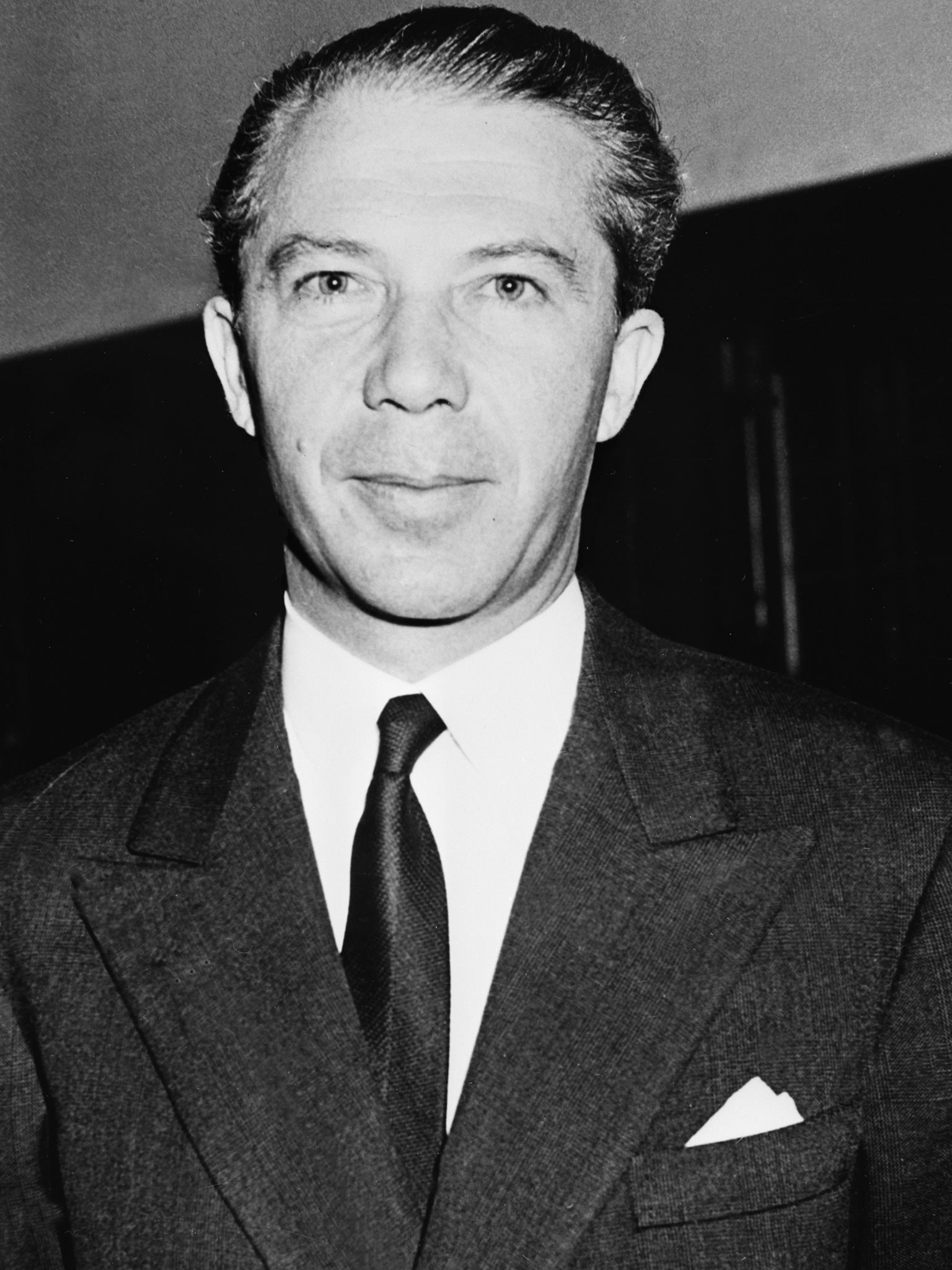
Your support helps us to tell the story
From reproductive rights to climate change to Big Tech, The Independent is on the ground when the story is developing. Whether it's investigating the financials of Elon Musk's pro-Trump PAC or producing our latest documentary, 'The A Word', which shines a light on the American women fighting for reproductive rights, we know how important it is to parse out the facts from the messaging.
At such a critical moment in US history, we need reporters on the ground. Your donation allows us to keep sending journalists to speak to both sides of the story.
The Independent is trusted by Americans across the entire political spectrum. And unlike many other quality news outlets, we choose not to lock Americans out of our reporting and analysis with paywalls. We believe quality journalism should be available to everyone, paid for by those who can afford it.
Your support makes all the difference.Christian de Duve was a Belgian biochemist whose work on the internal mechanisms and structure of cells led to a better understanding of genetic disorders and unlocked a new area of cell research, earning him a share of the 1974 Nobel Prize for Physiology or Medicine along with Albert Claude and George Palade from the Rockefeller Institute. They were largely responsible for the birth of modern cell biology, with de Duve's work on lysosomes and peroxisomes specifically cited as important by the Nobel Committee.
De Duve died in an act of euthanasia – legal in Belgium - carried out by doctors at his home with his family present. His decision was firm and final following a fall a few weeks earlier which added to ailments he was already suffering from, including cancer. "It would be an exaggeration to say I'm not afraid of death," he said, "but I'm not afraid of what comes after, because I'm not a believer."
In cell biology an organelle is a specialised subunit within a cell with a specific function. De Duve discovered lysosomes (the digestive organelles, which engulf and destroy invading bacteria, toxins, unwanted cellular products and dying cells) and peroxisomes (organelles that are the site of metabolic processes involving hydrogen peroxide).
His discovery of lysosomes arose out of his research on the enzymes involved in the metabolism of carbohydrates by the liver. While using Claude's technique of separating the cell components centrifugally, he noticed that the cells' release of the enzyme acid phosphatase increased in proportion to the amount of damage done to the cells in the centrifuge.
He reasoned that the acid phosphatase was enclosed within the cell in some kind of membranous envelope that formed a self-contained organelle. He calculated the probable size of this organelle, termed it the lysosome, and later identified it in electron microscope pictures, work pioneered by Claude. De Duve's discovery of lysosomes answered the question of how the enzymes used by cells to digest nutrients are kept separate from other cell components.
Researchers have since discovered over 50 lysosomal enzymes and some genetic diseases that result when an enzyme is either absent or does not function properly. Nowadays, some such conditions, like Gaucher's disease or Pompe disease, which causes sugar to accumulate in the liver and other organs, are treated with drugs that supply the needed enzyme.
Christian René de Duve was born in Thames-Ditton in 1917. His parents, of Belgian-German extraction, had fled their homeland at the outbreak of the First World War. Returning to Belgium in 1920, de Duve grew up in Antwerp, and spoke four languages fluently. He enrolled at the Jesuit Catholic University of Louvain and studied ancient humanities before progressing to medicine, graduating in 1941. During the Second World War he served as a medic in the Belgian army. He was posted to southern France but his regiment was captured almost immediately by the Germans.
After a spell in a POW camp he escaped and returned to Louvain to complete his studies. Preferring research, he pursued an advanced chemistry degree, writing a book on the mechanics of insulin based on his thesis, earning the equivalent of a doctorate in 1945 and an MSc in chemistry in 1946.
Seeking more biochemistry training, he worked at the Nobel Institute in Stockholm with Hugo Theorell and Carl and Gerty Cori at Washington University in St Louis, before returning to the University of Louvain Medical School in 1951 as professor of biochemistry. De Duve recalled that his mentors (later Nobel winners) were "all sticklers for technical excellence and intellectual rigour, prerequisites of good scientific work."
In 1962 de Duve became a professor at the Rockefeller University and began dividing his time between his laboratories there and at Louvain. In 1974 he founded the International Institute of Cellular and Molecular Pathology in Brussels. He retired as President of the Institute in 1991.
De Duve was a prolific writer, later in his career writing a number of books for the general public, the last being Genetics of Original Sin (Yale University Press, 2010). He received many international honours and was a member of numerous scientific and academic societies, including the Royal Society.
Christian de Duve, biochemist; born Thames-Ditton, Surrey 2 October, 1917; married 1943 Janine Herman (died 2008; four children); died Nethen, Belgium 4 May 2013.
Join our commenting forum
Join thought-provoking conversations, follow other Independent readers and see their replies
Comments